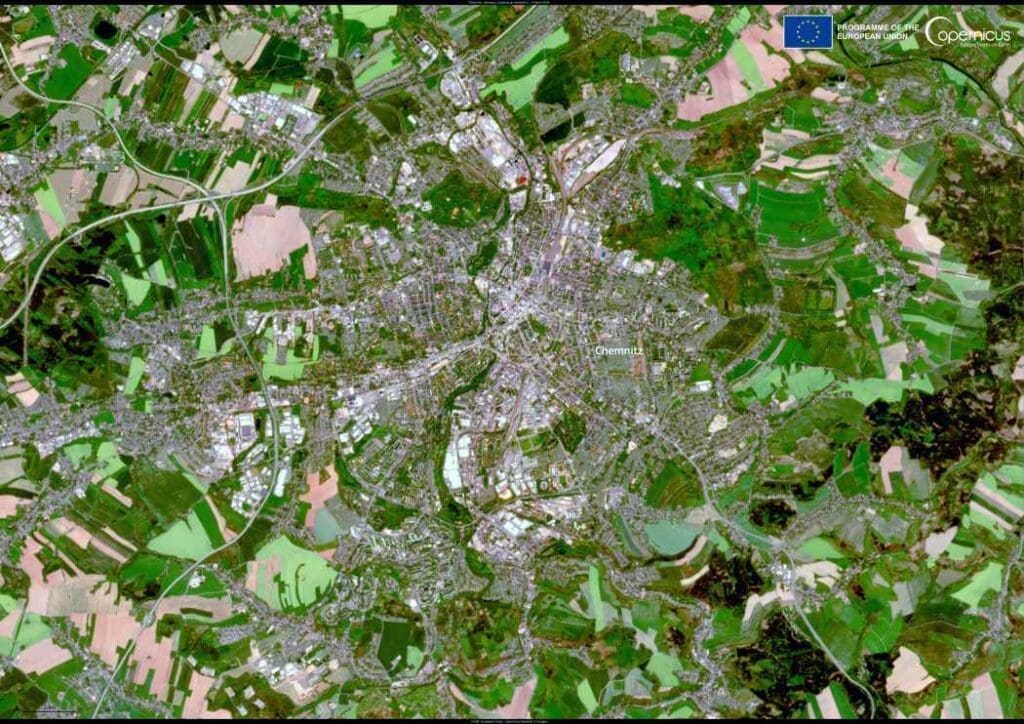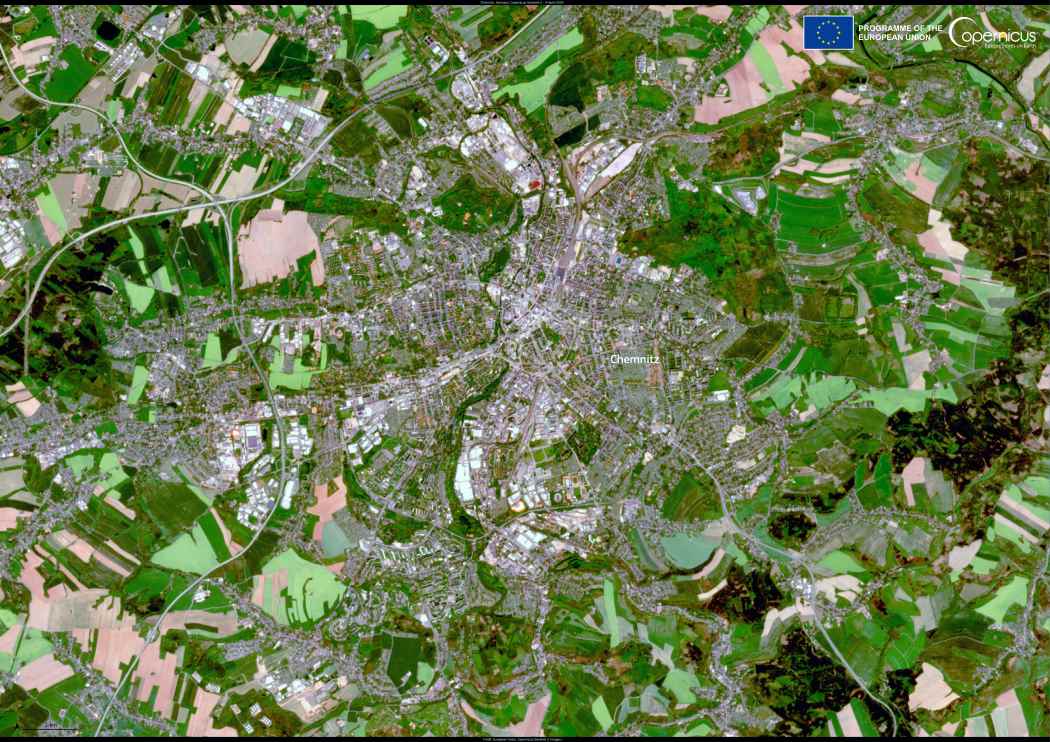Chemnitz, Germany, has been named one of the European Capitals of Culture for 2025, a prestigious title awarded by the European Commission to cities across Europe since 1985.
The initiative celebrates cultural diversity and history while fostering urban development through culture. The designation process spans several years and aims to enhance the international profile of chosen cities, boost tourism, and revitalize their cultural landscapes.
Chemnitz’s selection highlights its vibrant cultural scene and its historical significance as a hub of industrial development in Germany. The city has undergone remarkable transformations, including its renaming from Karl-Marx-Stadt after German reunification and the dissolution of the German Democratic Republic (GDR). These changes have profoundly influenced the city’s identity, fostering innovation and a renewed cultural spirit that now resonates on a European scale.

This image, acquired on April 4, 2024, by the Copernicus Sentinel-2 satellite, provides a stunning view of Chemnitz.
Sentinel satellites play a vital role in monitoring culturally significant sites worldwide, delivering valuable data for assessing land use and urban change while supporting the preservation and protection of these important areas.
Featured image Chemnitz, Germany. Credit: European Union, Copernicus Sentinel-2 imagery




